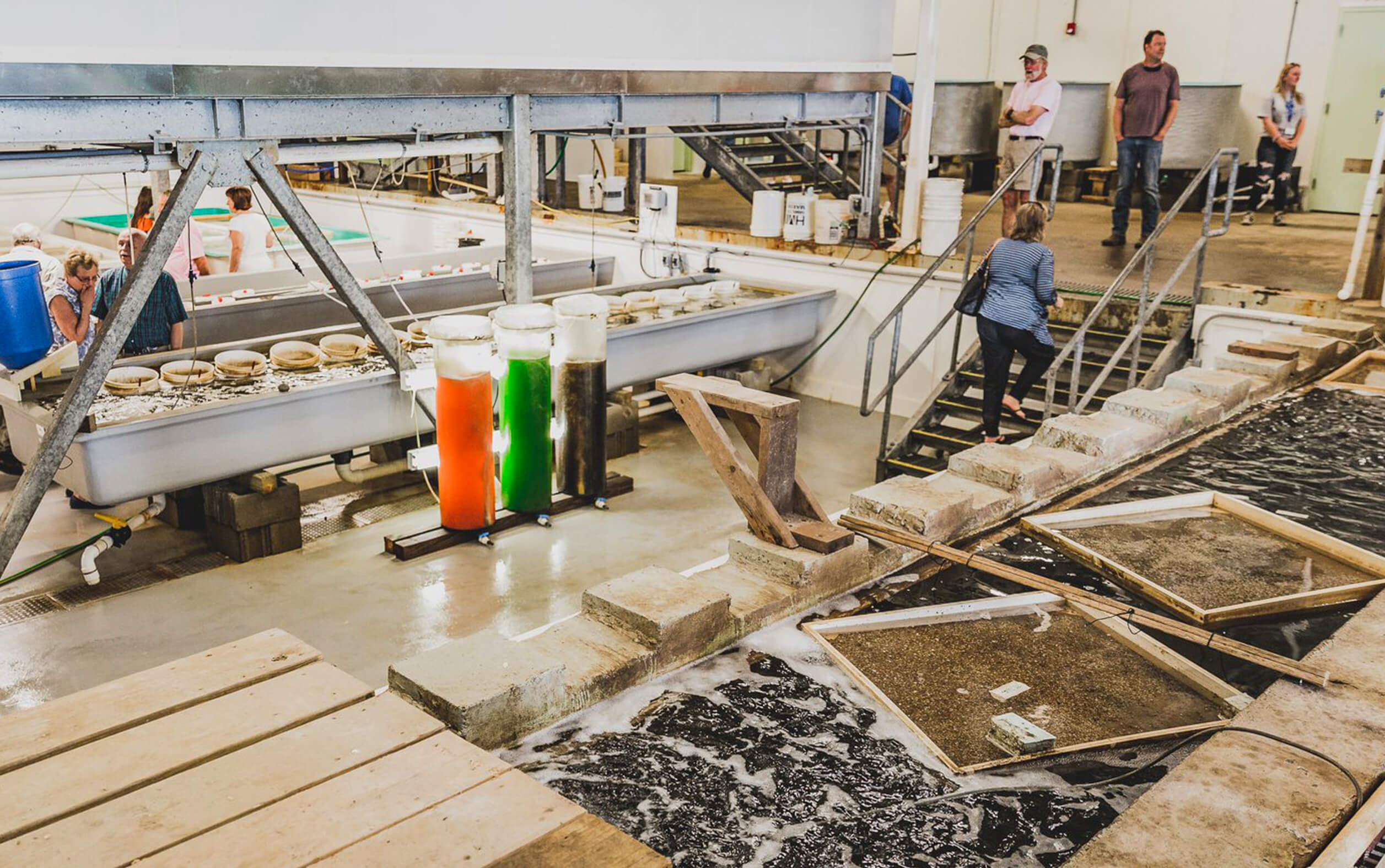Marine Science Field Station
The Marine Science Field Station is a marine laboratory, education center and shellfish hatchery located on a 16-acre campus adjacent to the rocky shores of Western Bay, Great Wass Island, in the town of Beals. Twenty-five miles west of the University of Maine at Machias, the Field Station is a place where students can discover and learn about local marine environments, conduct research with cultured or wild marine organisms in the field or lab, or work during the summer or academic year as a paid intern or work-study student.
Academics
Students enrolled in Oceanography (ENV 103) will visit the Marine Science Field Station during their first semester at the University of Maine at Machias where they will tour the shellfish hatchery and microalgal production center, visit the running seawater laboratories, and learn to take/process plankton samples, and inspect them microscopically. Other opportunities that connect the classroom to the Field Station occur during the sophomore/junior year (Marine Biology and Ecology – BIO 206) and senior year (Marine Ecology – BIO 360) when field sampling is conducted to examine distribution and abundance of rocky intertidal or soft-bottom organisms. Additional opportunities occur in both the laboratory and field where experiments allow students to examine factors that control or regulate populations of marine organisms. In addition, during their last three semesters, students can enroll in a research course (Senior Thesis in Biological Research – BIO 404, 405, 406) that enables them to fulfill their passion for discovery and exploration in marine biology.
Internships
Internships are 12-week, paid, summer-based experiences at the Field Station that enable students to work with their advisor/mentor on a research project. The project can be entirely developed by the student that focuses on a short-term question that can be answered either through field sampling or experimental work in the lab or field. Other opportunities exist to become more involved in faculty-based research where students participate in projects developed by a mentor/advisor. Interns collect and analyze data, then present results during a statewide symposium for undergraduate research in marine science that occurs during the second week of August.

Work Study
This is a federal program that enables students to earn money to pay for school-related expenses such as tuition by working at the Marine Science Field Station during the summer or academic year while taking online or in-person courses. Work can include assisting:
